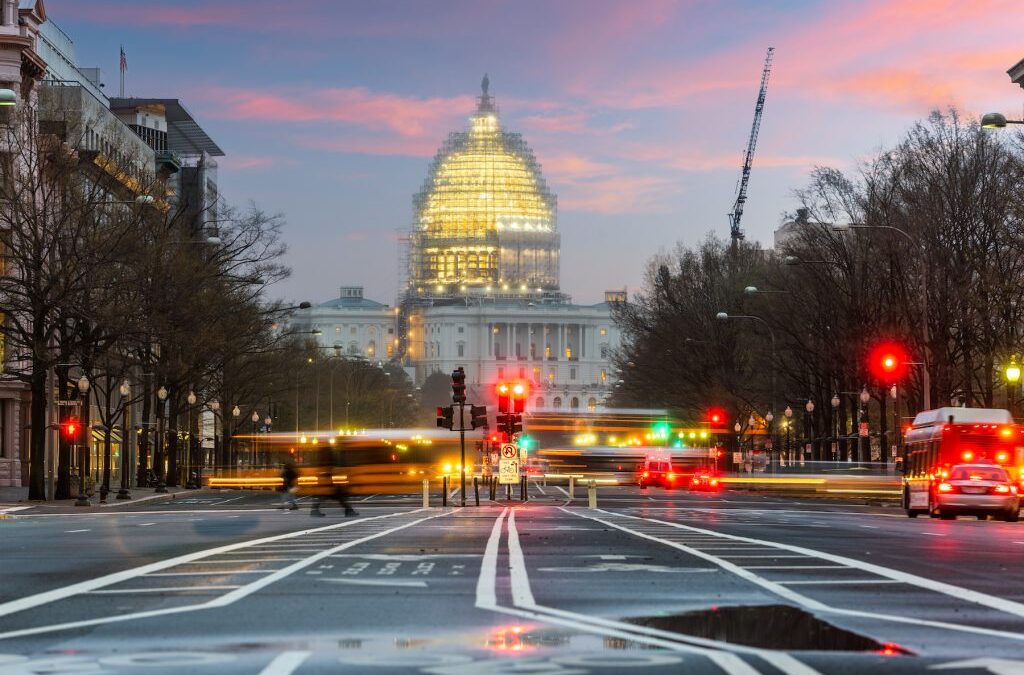In a major development with wide-reaching implications for U.S. public health infrastructure, a federal judge in April 2025 temporarily blocked the Biden administration’s effort to claw back $11 billion in unspent COVID-19 and public health grants from states. The ruling came as numerous state leaders and health departments pushed back against the Department of Health and Human Services’ (HHS) attempt to rescind funds that were allocated during the pandemic but not yet expended.
The decision has set off a firestorm of legal and political debate, as states argue they need the money to sustain critical public health programs amid continued outbreaks of SARS-CoV-2 variants and other respiratory illnesses.
Rapid tests remain a vital tool in the medicine cabinet for ongoing infection cycles of COVID-19. Be sure to stay stocked up with market-leading ASSURE-100 rapid tests this season.
The Background: Rescinding Unspent COVID-19 Funds
Earlier this year, the HHS announced it would begin the process of reclaiming over $11 billion in unspent pandemic relief funds distributed to state and local health departments under various COVID-19 emergency packages.
According to HHS, the justification was rooted in fiscal accountability: with the declared end of the federal public health emergency in 2023, the agency argued that unutilized funds should be returned to the federal government.
📉 Many of these grants, distributed under the American Rescue Plan and CARES Act, were intended to support:
- COVID-19 vaccination infrastructure
- Public education campaigns
- Local contact tracing and outbreak response
- Expansion of testing infrastructure
- Stockpiling of essential supplies like rapid home tests
States Push Back
However, governors and state health officials quickly condemned the move, saying the withdrawal of funds would cripple long-term public health preparedness.
🏥 In states like California, New York, and Illinois, health departments had earmarked the funds for future pandemic preparedness, including investments in:
- Ventilation and air filtration for public buildings
- Mobile health units for rural communities
- Stockpiles of PPE and testing kits
- Expanding long COVID research and treatment facilities
“These funds were not unused out of neglect—they were reserved for sustainability,” said Dr. Elena Martinez, Director of the Illinois Department of Public Health. “We’re facing unpredictable future variants of COVID-19 and flu. Gutting our budget now is short-sighted.”
Federal Judge Issues Injunction
On April 4, 2025, Judge Marcia L. Reynolds of the U.S. District Court for the District of Columbia issued a preliminary injunction blocking HHS from reclaiming the funds, citing that the agency may have exceeded its statutory authority.
In her ruling, Reynolds wrote, “The court finds a reasonable likelihood that the plaintiffs will succeed in proving that these funds, once allocated by Congress and accepted by states under specific terms, cannot be unilaterally revoked by an executive agency.”
The injunction halts the clawback effort pending further litigation.
Impact on Testing and Disease Surveillance
With the future of COVID-19 still uncertain, states say this funding is critical to maintain rapid testing infrastructure, especially as new SARS-CoV-2 variants continue to emerge.
📦 Many states have contracts to distribute free or low-cost rapid covid testing kits through schools, community centers, and pharmacies.
📊 States also rely on grant funding to support:
- Wastewater surveillance programs that detect viral activity before case numbers rise
- Genomic sequencing of new variants
- Public outreach programs to encourage vaccination and testing
Without continued financial support, experts warn that disease detection efforts could falter, increasing the risk of outbreaks going unnoticed.
The Political Backlash
The ruling has deepened existing political divides over COVID-19 policy.
🟦 Democratic governors applauded the judge’s decision and pledged to continue using the funds for health infrastructure. 🟥 Some Republican lawmakers criticized the move, claiming the emergency has passed and funds should be returned to reduce federal spending.
Still, a bipartisan group of public health advocates argue that public health funding should not be treated like discretionary political capital.
Looking Ahead: What Happens Next?
The legal battle is far from over. The HHS is expected to appeal the injunction, and the case could ultimately go to the U.S. Court of Appeals. Meanwhile, state governments are pushing to formalize protections for remaining pandemic funds, seeking clarity from Congress on the use and timeline of grant programs.
Lawmakers in both chambers have introduced bipartisan bills that would extend the use-by deadlines on COVID-19 funds through at least 2026. (Source)
Conclusion: A Fight Over the Future of Public Health
This legal showdown isn’t just about budgetary line items—it’s a debate about how the U.S. prepares for future health emergencies.
With respiratory viruses like COVID-19, flu, and RSV expected to remain seasonal threats, states argue they must retain the tools needed to respond quickly. That includes testing infrastructure, trained personnel, and public engagement systems.
In the meantime, Americans can continue protecting themselves by staying up to date on vaccines and keeping rapid home tests stocked to monitor symptoms early.
Whether the courts ultimately side with HHS or the states, one thing remains clear: public health preparedness requires sustained investment, not sudden retraction.
Rapid tests remain a vital tool in the medicine cabinet for ongoing infection cycles of COVID-19. Be sure to stay stocked up with market-leading ASSURE-100 rapid tests this season.
Keywords: COVID-19 grants, HHS clawback 2025, federal judge blocks grant rescission, SARS-CoV-2, rapid covid testing, public health funding, pandemic response, rapid home tests
April 9, 2025
Oceanit

